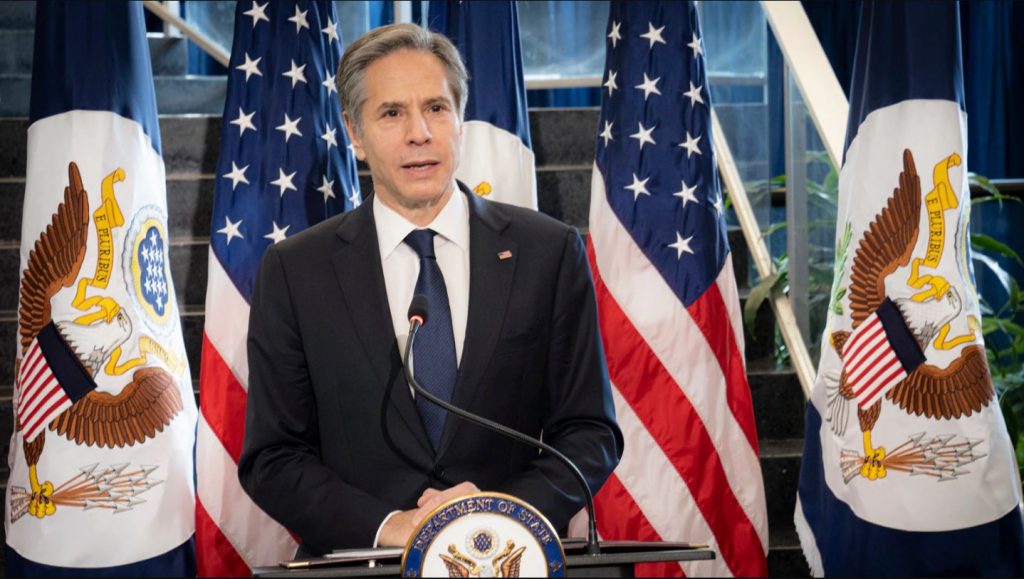“We will uphold the principle of NATO’s open door,” announced U.S. State Secretary Antony Blinken on January 26 after Washington relayed a written response to Moscow on “security guarantees.”
The top diplomat refused to go into details about the response to Moscow’s demands, but stressed the document “makes very clear some of the basic principles that we are standing by, committed to, and will uphold.”
Albeit noting that the U.S. cannot make decisions unilaterally for the Alliance, from Washington’s perspective the NATO door remains open and “there will be no change” in the policy.
The remarks come as the U.S. and NATO both conveyed counterproposals to Moscow, which demanded precluding the expansion of the Alliance to former Soviet Republics including Georgia and Ukraine, and curtailing military activity close to Russia’s borders.
The senior official asserted “there is no daylight” between the U.S. and NATO on issues of collective security in Europe.
He explained the document the U.S. delivered includes the concerns of Washington and its allies about “Russia’s actions that undermine security, a principled and pragmatic evaluation of the concerns that Russia has raised, and our own proposals for areas where we may be able to find common ground.”
The U.S. will not be releasing the document publicly believing diplomacy has the best chance to succeed if there is space for confidential talks, according to the Secretary of State.
Background
Russia delivered the proposals on “security guarantees” to the U.S. and NATO in December 2021. The development came amid Russia’s military build-up in and around Ukraine.
While all eyes are on Ukraine, which faces the risk of major military action, Georgia, whose leadership continues to keep the low public profile in unfolding conflict, has crept up on the agenda nonetheless.
Russia’s key demand is for NATO to formally retract at its upcoming Madrid Summit the pledge made in Bucharest in 2008 that Ukraine and Georgia will become members of the Alliance.
Moscow also demands that the U.S. and allied forces abstain from bilateral military cooperation, military exercises, or other “military activities” on the territories of former Soviet states.
Also Read:
- Tbilisi Irked as Russia Urges NATO Disavow Georgia, Ukraine Membership Promise
- Russia Reiterates Demands for NATO Non-Enlargement, Despite Pushback
- NATO Allies Reaffirm Commitment to Open Door Policy in Russia Talks
This post is also available in: ქართული (Georgian) Русский (Russian)

